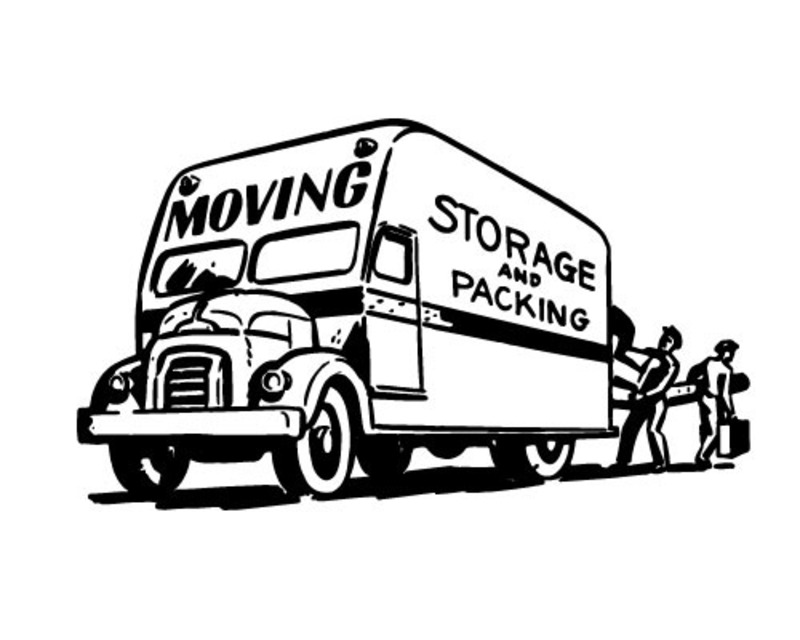How to Store Your Freezer: Ensure Longevity When Not in Use
Posted on 22/05/2025
How to Store Your Freezer: Ensure Longevity When Not in Use
Freezers are essential appliances in any household or commercial kitchen. They keep your food preserved, help you stock up on necessities, and greatly reduce food waste. But what should you do when you need to store your freezer for an extended period of non-use? Properly storing your freezer when not in use is crucial to ensuring it remains in optimal condition, ready to serve your needs once again. In this comprehensive guide, you'll learn the best practices, tips, and step-by-step instructions on how to store a freezer and guarantee its longevity.
Why Proper Storage Matters for Freezers
Whether you're moving homes, remodeling your kitchen, or simply taking a long vacation, neglecting proper storage of your freezer can lead to costly repairs, unpleasant odors, and even serious malfunction when it's time to use it again. By learning how to store your freezer correctly, you can avoid:
- Mold and mildew buildup due to lingering moisture
- Damage to mechanical and electrical components
- Pest infestation from improper sealing
- Odor retention caused by residual food particles
- Reduced appliance lifespan
Maintaining your freezer during periods of disuse is just as important as proper operation.

Step-by-Step Guide: Storing a Freezer When Not in Use
1. Empty and Unplug the Freezer
The very first step is to remove all contents. Do not attempt to store a freezer with food inside. Even with the power off, food will spoil and can create a breeding ground for bacteria, mold, and pests.
- Turn off and unplug the freezer fully from the electrical outlet.
- Carefully remove all food items and store them elsewhere if they're still safe to use. Discard any that have begun to thaw or show signs of spoilage.
2. Defrost the Freezer Thoroughly
If your freezer is not frost-free or you notice ice buildup, you must defrost it before storage. Allowing ice to remain in a non-operational freezer can cause water damage, unpleasant odor, and even corrosion.
- Place towels around the base to catch melting ice and water.
- Leave the door open and wait. You can accelerate the process using bowls of hot water placed inside, but avoid sharp objects to chip away at the ice.
- Once defrosted, thoroughly wipe all surfaces inside the freezer with a clean, absorbent cloth.
3. Clean the Interior and Exterior
Sanitizing your freezer before storage will prevent odors, germs, and mold growth. Use a gentle cleaning solution to scrub all surfaces, including drawers, shelves, and door seals.
- Mix a solution of baking soda and warm water (1 tablespoon per quart of water) or use mild dish soap.
- Wipe down all interior surfaces, paying close attention to corners, crevices, and seals.
- Rinse with clean water and dry thoroughly with a soft towel.
- Clean the exterior, including the back and bottom (where dust may accumulate).
4. Dry and Deodorize Completely
Even a hint of moisture can result in mold or rust during long periods of freezer inactivity. Allow the appliance to air dry for at least 12-24 hours with the door open. To prevent odors:
- Place an open box of baking soda or a few activated charcoal bags inside to absorb residual moisture and smells.
- Check all surfaces for leftover dampness before proceeding.
5. Protect the Door Seal
The rubber door gasket or seal is vital for maintaining your freezer's airtight environment. Keeping this part in good condition ensures energy efficiency and prevents air leaks.
- Wipe the gasket carefully with a mild soap solution and dry fully.
- Apply a thin layer of petroleum jelly or specialized gasket lubricant to keep the seal flexible and prevent cracks during storage.
6. Secure the Power Cord
Wrap the freezer's power cord loosely and secure it to the back or side of the appliance with tape or a Velcro strap. This prevents tripping hazards and cord damage. Do not coil the cord too tightly, as this can lead to internal wire breakage.
7. Store with the Door Slightly Open
Never store a freezer with the door fully closed and latched. Doing so traps in any remaining moisture and promotes the growth of mold and bacteria.
- Use a piece of cloth, a small wedge, or a manufactured door-stop (many freezers include these for storage).
- Ensure the door stays open at least an inch or two to allow continuous air circulation.
8. Choose the Right Location for Freezer Storage
Where you store your freezer when not in use can greatly affect its longevity.
- Dry, cool place: Moist and humid environments encourage rust and corrosion, especially on coils, electrical components, and the outer casing.
- Avoid direct sunlight and high-heat zones, which can fade surfaces and deteriorate plastic components.
- Level ground: Store your freezer on a stable, flat surface. If it must sit on a concrete floor, elevate it slightly with wood blocks or a sturdy mat to avoid condensation.
- Consider using a lightweight cover (breathable fabric, not plastic) to protect against dust, dirt, and accidental scratches. Never use airtight or plastic covers that trap moisture.
Additional Freezer Storage Longevity Tips
Keep It Upright
When storing, always keep your freezer in its normal upright position. Laying it on its side or back may cause compressor oil to flow into the cooling lines, which can damage the internal mechanisms when restarted.
Monitor Periodically
Even in storage, periodic checks can prevent unexpected damage. Every 2-3 months, open the storage space and inspect the freezer for:
- Any signs of moisture, rust, or mold
- Possible pest intrusion
- Condition of the door gasket
Handling Reuse After Long-Term Storage
When it's time to use your freezer again, ensure you:
- Remove all deodorizing agents (baking soda, charcoal, etc.)
- Re-clean the interior with warm, soapy water and dry thoroughly.
- Let the freezer sit upright for at least 4-24 hours (especially if it needed to be moved) to allow any displaced coolant to resettle.
- Inspect the power cord for wear or damage before plugging in.
- Test run the freezer empty for several hours to verify proper operation before restocking with food.
How Long Can You Store a Freezer Without Use?
With correct freezer storage methods, most modern units can sit unused for several months to even over a year without ill effects. However, it is important to note:
- Older models may be more susceptible to internal corrosion or refrigerant leaks in prolonged storage.
- Freezers stored improperly are much more likely to develop system faults.
- Consult your manufacturer's manual for appliance-specific instructions.
Common Mistakes to Avoid When Storing Your Freezer
Below are typical errors that can lead to a shorter lifespan or malfunctioning of a stored freezer:
- Not cleaning or drying the freezer: Even small crumbs or moisture can cause big problems long term.
- Sealing the door shut: Airtight doors trap moisture and encourage mildew growth.
- Storing in a damp or wet environment: Basements with flooding risks or garages that gather condensation are not ideal for freezer storage.
- Failing to protect the rubber gasket: A cracked, dried-out gasket will compromise energy efficiency and performance.
- Forgetting the power cord care: Damaged or brittle cords may present an electrical hazard upon reuse.
- Laying the freezer on its side or back: This can cause oil to reach parts of the compressor where it shouldn't be, risking damage at restart.

Frequently Asked Questions about Freezer Storage Longevity
Q: Can I store a freezer in an unheated garage?
A: Most freezers can handle cold storage, but extreme temperature fluctuations can shorten their lifespan, especially in climates where temperatures drop below freezing. Invest in a garage-ready or "garage kit" freezer if you must store one in such environments, and always check your warranty for location-based restrictions.
Q: Is it better to leave a freezer plugged in or unplugged when not in use?
A: Unless specified by the manufacturer, unplug your freezer during "off-season" storage. Leaving it plugged in wastes electricity, poses a fire risk, and may still develop odors or moisture issues if unattended.
Q: How do I get rid of musty odors after long storage?
A: Clean with a solution of equal parts water and vinegar, then leave an open box of baking soda inside to deodorize. Repeat the process and allow it to air out fully before restarting.
Q: Should I cover my freezer during storage?
A: Yes, but only with a breathable fabric cover to protect from dust. Avoid plastic or airtight coverings, which can trap condensation and encourage rust.
Q: Can mold inside an unused freezer damage its functionality?
A: Yes, persistent mold can degrade both internal surfaces and door seals, potentially impacting the operation and safety of your freezer. Address mold with thorough cleaning as soon as possible.
Summary: Ensure the Longevity of Your Freezer with Smart Storage Tips
Whether you're storing your freezer for a season, a move, or simply to maximize space, following proper storage practices is essential to guarantee a long appliance life and hassle-free restarting. By cleaning, drying, protecting, and ventilating your freezer in a suitable location, you'll prevent the most common issues plaguing neglected appliances.
- Always empty, clean, dry, and deodorize the appliance before storing.
- Store with the door ajar and in a dry, level location away from direct sunlight and dampness.
- Inspect regularly during storage for optimal freezer longevity.
A well-maintained freezer will serve you faithfully for many years to come. Proper storage is your best investment in the appliance's future performance and reliability!
Looking for more advice on caring for kitchen appliances?
Browse our site for in-depth guides, tips, and troubleshooting for all your home appliance needs!
Latest Posts
Essential Steps for Decluttering Before Relocating
Why Moving a Piano Isn't Your Average DIY Task
Simplifying Your Move: Effective House Cleaning Tips







